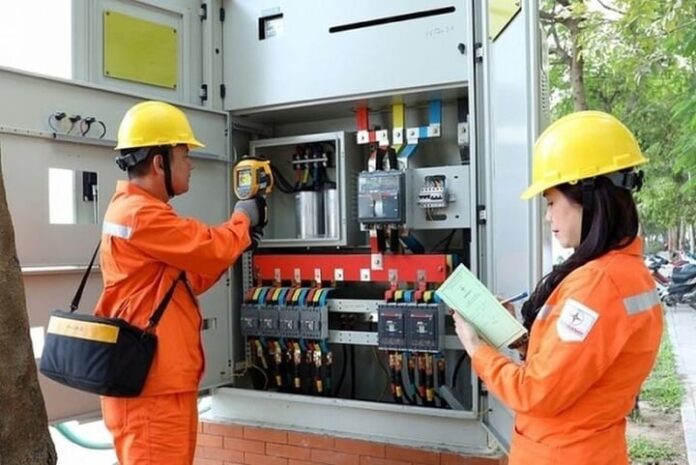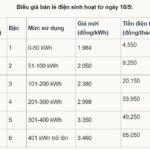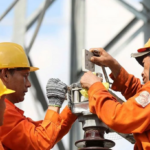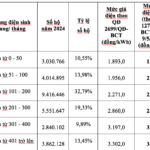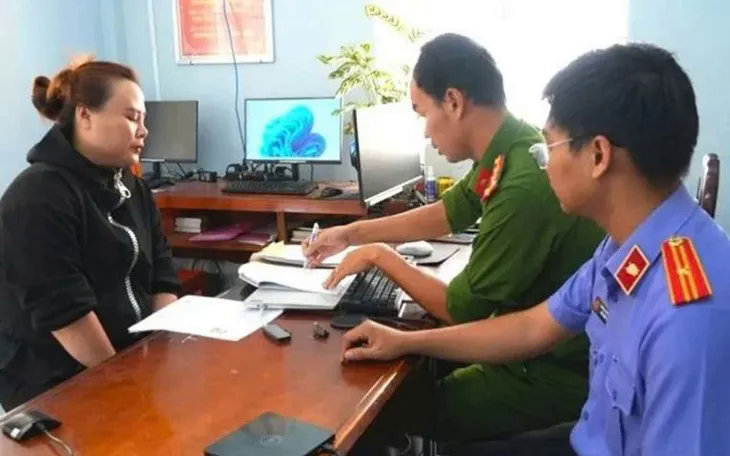Not Necessarily a Price Increase Every Three Months
Dr. Vo Tri Thanh, former Vice President of the Central Institute for Economic Management and current President of the Institute for Brand and Competition Strategy Research, stated that EVN’s electricity price hike follows regulations and is inevitable, aligning with global trends.
“EVN’s estimation that the price increase will impact the CPI by 0.09% is quite accurate. Our electricity demand is enormous, and the risk of power shortages persists. Thus, the price adjustment is necessary to signal foreign investors to invest in the electricity sector. However, we should extend the roadmap and not increase prices every three months,”
said Dr. Vo Tri Thanh.
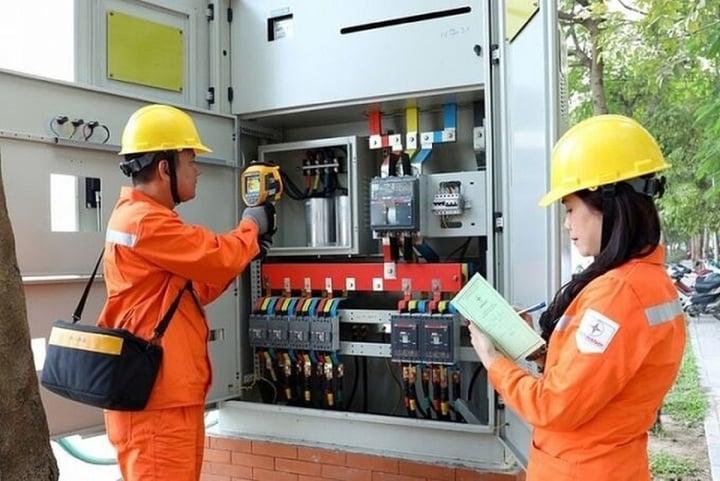
Electricity prices rose by 4.8% starting today. (Photo: EVN)
In an interview with VTC News, Mr. Vu Vinh Phu, former Vice Director of Hanoi Department of Commerce, asserted that the price adjustment is essential given the limited supply and rising input costs, especially for renewable energy sources, imported coal, and electricity.
“However, this adjustment should follow a reasonable roadmap to avoid burdening citizens and businesses further. Moreover, the price increase must be transparent, with accurate calculations of costs and revenues. EVN should disclose their revenue and expenditure, profits and losses, and not maximize the allowed increase of under 5%. With the granted autonomy, they must be more open and plan reasonable price hikes,”
Mr. Phu added.
Mr. Phu cited examples from Poland and Germany, where they plan their electricity price increases over five years: a 0.1% increase this year, followed by a 0.3% rise next year, and so on. This long-term planning allows businesses to strategize production and people to plan their consumption accordingly.
Mr. Vu Duc Giang, Chairman of the Vietnam Textile and Apparel Association and Chairman of the Board of Directors of Vietnam Textile and Garment Corporation and May 10 Corporation, agreed that the price hike is inevitable, and society and businesses should share the burden with the electricity sector.
“However, the price increase should keep up with the trends in other industries, especially those affected by external policies. Thus, the Ministries of Finance and Industry and Trade and EVN should calculate more appropriately and consider a longer timeframe. A price increase every three months will greatly affect businesses as they cannot proactively calculate product costs for negotiations with partners. Stability and autonomy in pricing are crucial,”
Mr. Giang emphasized.
According to Mr. Giang, including this latest increase, electricity prices have risen by 17% in the last three years. For the textile and dyeing industries, electricity accounts for 9-12% of production costs, while for the garment industry, it’s over 1.8%. Thus, the price hike will contribute to higher product prices, further challenging Vietnamese goods’ competitiveness regarding technology and human resources.
To ease the burden on businesses, the Chairman of the Vietnam Textile and Apparel Association proposed that the government defer corporate income taxes. He also suggested that the financial system continue to lower interest rates for businesses to reduce their financial strain.
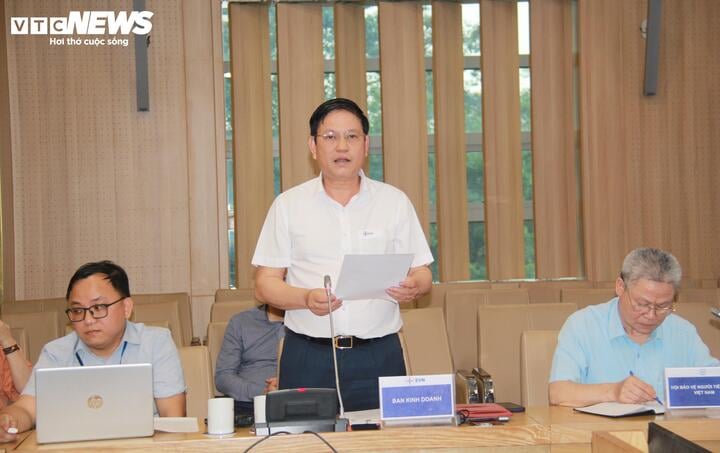
EVN Announces Electricity Price Increase
Mr. Vu Vinh Phu pointed out that the price increase would comprehensively impact people’s lives and businesses, especially the poor. For low-income households, the current price hike translates to an increase of tens of thousands of VND in their monthly electricity bills. For businesses, higher electricity prices mean higher production costs and reduced competitiveness for Vietnamese goods in the domestic and export markets.
“EVN’s claim that the price increase will contribute to a 0.09% rise in the CPI is inaccurate because they cannot calculate the impact from the initial to the final stages. When electricity prices go up, all sectors, from production to consumption and competition, are affected, influencing overall social consumption. This ‘hundreds of sorrows fall on the silkworm’ situation is what we want to avoid,”
Mr. Phu remarked.
EVN’s Perspective on the Price Increase
According to EVN’s calculations, a 4.8% increase in the average retail electricity price will impact the CPI by 0.09%. Specifically, for households consuming less than 50kWh, the electricity bill will increase by approximately VND 4,550/month. For those using 51-100kWh, the increase will be VND 9,250/month, and for 101-200kWh, it will be VND 20,150/month.
Households with electricity consumption between 201 and 300kWh will pay an additional VND 33,950/month, while those using 301-400kWh will see a rise of VND 49,250/month. For usage above 400kWh, the increase will be around VND 65,050/month.
Poor households and those with social policies will receive monthly electricity bill support equivalent to the consumption of 30kWh/month. For social policy households with electricity consumption not exceeding 50kWh/month, the support will also be equivalent to 30kWh/month. The support for poor and policy households is VND 56,790/month.
With the new prices, each poor household will receive electricity bill support of approximately VND 59,520/month (excluding value-added tax). This policy aims to reduce the financial burden on poor and policy households, ensuring social welfare and implementing the government’s support for disadvantaged groups.
Mr. Vo Quang Lam, EVN’s Deputy General Director, explained that the electricity produced and purchased by EVN in 2024 and 2025 increased by 33.6 billion kWh, mainly from power plants with high production costs. Meanwhile, the proportion of hydropower has continuously decreased to a limit, and the costs of gas, coal-fired, and oil-fired power are higher than those of cheaper sources.
“This year, weather fluctuations reduced hydropower generation by nearly 7 billion kWh compared to 2024. Coal-fired power has grown significantly in the segment using imported coal, and global coal prices from 2021 to 2023 increased due to geopolitical tensions. In the first four months of 2025, costs for imported coal, gas, and oil continued to rise,”
Mr. Lam said.
EVN regularly reviews, calculates, and reports to the competent authorities for price adjustments. These adjustments consider input costs, variable costs, and the payment capacity of people and businesses to find a balance. Mr. Lam added that with the responsibility of ensuring power supply, EVN also has to ensure the economy’s competitiveness and social welfare, making the 4.8% increase relatively appropriate.
Fuel Prices Continue to Drop
The domestic gasoline prices have witnessed another significant drop during the operating period on May 8th. Specifically, E5RON92 gasoline decreased by 377 VND per liter, while RON95-III gasoline dropped by 407 VND per liter. Similarly, various types of oil products also experienced reductions ranging from 550 VND per liter to 665 VND per kilogram when compared to the previous period.

